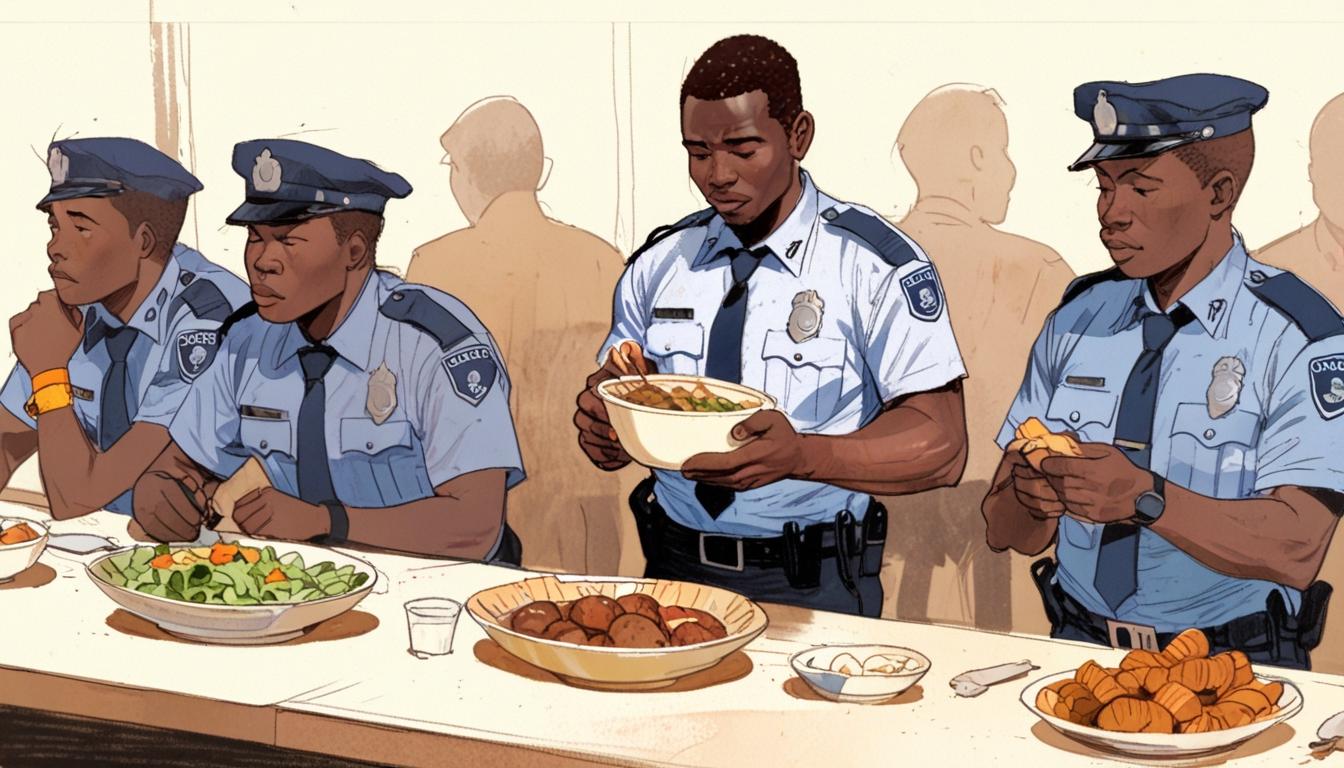In a recent incident that has sparked widespread debate around cultural sensitivity and policing practices, a Zimbabwean man in the UK found himself at the centre of a misunderstanding after British police mistakenly identified his traditional dish, sadza, as illegal drugs. Tinashe Ndongwe, 26, was involved in a minor collision on the A419 in Swindon on February 3, which initially led officers to suspect he was in possession of controlled substances.
After his Ford Fiesta collided with a Kia Ceed, authorities detained Ndongwe when they discovered a white powdery substance wrapped in plastic bags. The substance, early reports suggested, bore a resemblance to illegal narcotics, leading to an arrest for possession with intent to supply. However, subsequent lab tests revealed that the substance was in fact sadza, a staple food in Zimbabwe and several other southern African nations, made from ground maize flour.
In confirming the laboratory results, a spokesperson for the West Midlands Police stated, “Following routine testing, the substance was confirmed to be a non-controlled food product. All charges against the individual have been dropped. We regret the inconvenience caused.” This clarification brought relief to Ndongwe, who had planned to take the sadza home for dinner after preparing it earlier that day.
The incident has since gone viral, generating a mixture of humour and outrage online. As community leaders reflected on the implications of this misunderstanding, Farai Muchenje, chair of the Birmingham Zimbabwean Community Association, commented on the cultural disconnect: “This is a reminder that not every unfamiliar item is dangerous. Sadza is to Zimbabweans what mashed potatoes are to the British.” Her remarks highlight a growing acknowledgment of the need for improved cultural training within police forces, particularly in areas with diverse populations.
Supporters have voiced concerns about the broader ramifications of the event, linking it to persistent issues of racial profiling within British policing. There is an increasing demand for cultural awareness training for law enforcement, aimed at preventing such errors in the future. In light of this incident, local advocates are pushing for police forces to develop a more nuanced understanding of the cultural items and practices that are commonplace in the communities they serve.
The response on social media has often teetered between satire and serious discussion, with one user quipping, “The only thing illegal here was trying to separate a Zimbabwean man from his sadza.” This blend of humour underscores the cultural pride that many Zimbabweans feel regarding their cuisine, as well as the absurdity of the situation. Local commentators have resonated with the sentiment that a simple cultural misunderstanding escalated into a serious legal incident, possibly influencing perceptions of police interactions in multicultural regions.
In essence, while the charges against Ndongwe have now been dropped and he awaits sentencing for dangerous driving, the episode serves as a striking reminder of the importance of cultural competence in law enforcement. As one local radio host put it, “Next time, maybe call a Zimbabwean auntie before calling the forensics team.” The humorous critique both highlights the absurdity of the situation and calls for essential improvements in police training and community relations.
The case of Tinashe Ndongwe is more than just a humorous anecdote; it’s a poignant reminder of the challenges faced by many immigrants navigating a new cultural landscape and the urgent need for systemic changes within policing practices to foster understanding and respect in increasingly multicultural societies.
Reference Map
- Paragraph 1: (1), (2), (3), (4)
- Paragraph 2: (1), (2), (3), (4)
- Paragraph 3: (1), (6), (7)
- Paragraph 4: (5), (6)
- Paragraph 5: (1), (2), (3)
- Paragraph 6: (3), (7)
Source: Noah Wire Services
